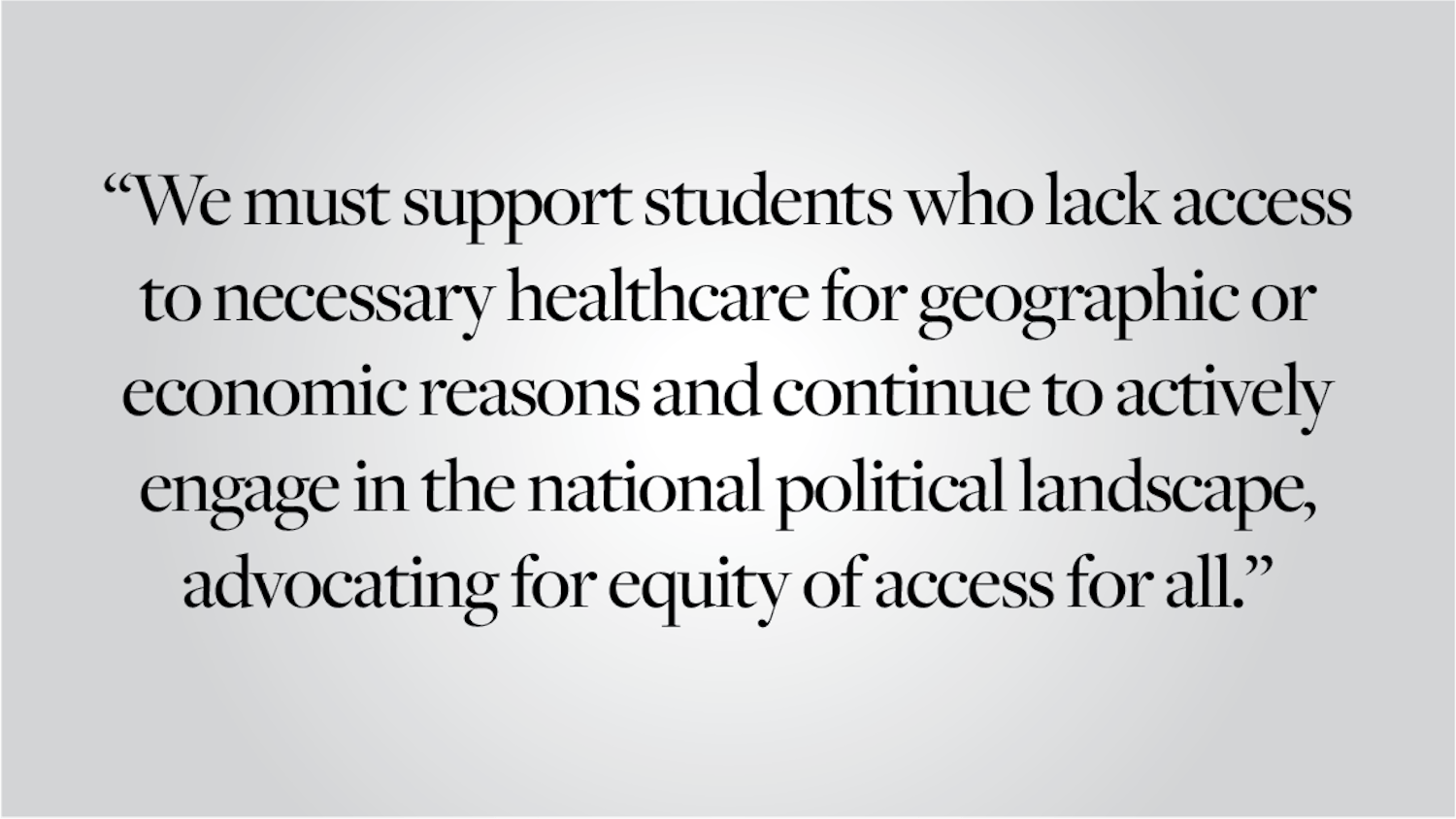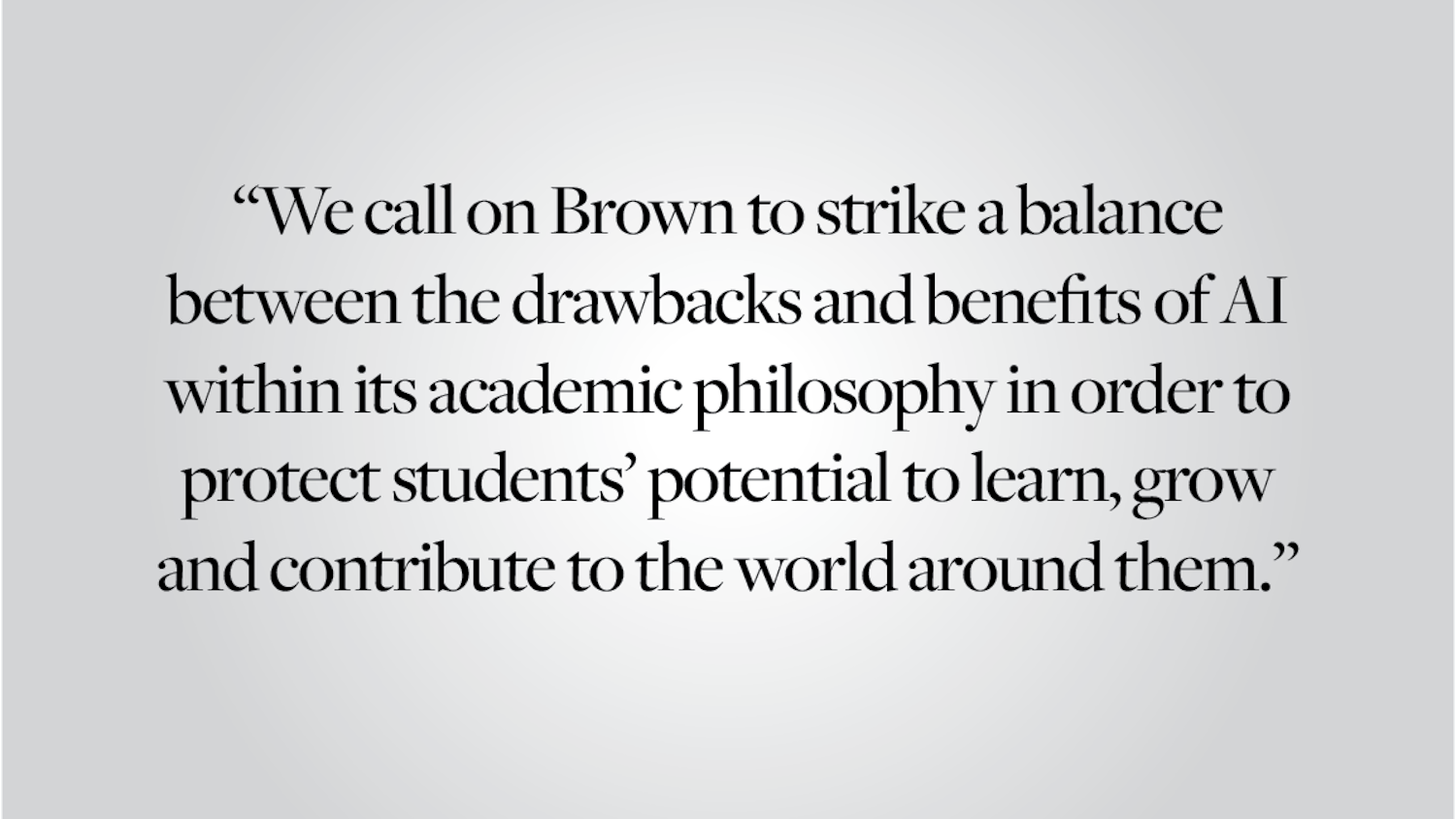On a Saturday night last year, I laid on the floor of my apartment bathroom deciding whether or not to call Brown Emergency Medical Services. I was intoxicated for only the second time in my life. I couldn’t stop vomiting alcohol as I started slipping in and out of consciousness. I desperately needed emergency care, but something was stopping me: the fear of punishment.
For those who don’t know, be warned. At Brown University, if you use Brown EMS for alcohol abuse, the administration will find out and you will face University intervention. Yes, even if you are of legal drinking age. The underlying issue with this policy is that it inadvertently causes students to forgo medical care in potentially life-threatening situations.
My experience with alcohol is, unfortunately, not unique among college students. According to the National Institutes of Health, in any given month approximately 59.8 percent of U.S. college students between the ages of 18 and 22 use alcohol, and 37.9 percent of students engage in heavy drinking (defined by the NIH as having five or more drinks on a single occasion). The NIH also cites a study conducted between 2000 and 2008 that found a 25 percent increase in hospitalizations resulting from alcohol overdose among 18 to 24 year olds over this eight-year period. In 2008, there were 59,000 18 to 24 year olds hospitalized for alcohol-related overdoses in the United States, and in any given year approximately 1,800 college students die of alcohol overdose. There’s no denying the simple fact: The vast majority of college students drink. Brown students are no exception.
A Cornell study in 2000 reported that 19 percent of students had thought about calling for help because they were concerned about someone who was severely intoxicated, but only 4 percent actually made the call. After Cornell instituted its Medical Amnesty Protocol — under which students are not punished for using EMS in cases of alcohol abuse — there was a 61 percent decrease in students citing the fear of “getting in trouble” as a barrier to using EMS for alcohol abuse, the study showed.
Though Brown claims to have a medical amnesty policy, the University still takes action. If you use Brown EMS for alcohol abuse, you can expect to receive a letter from the dean of student life and the Office of Student Conduct. This letter forces you to attend a meeting with University personnel about your alcohol abuse. According to the letter I received on April 25, 2016, following my EMS call,“if you do not complete this requirement by said date, you will be charged with the following offense: Offense V,” which is the failure to comply with proper directives of a University official. If charged with the offense, you will have to attend an academic hearing where punishment can include suspension and even expulsion from the university. All of this can happen even if you are over 21.
In fact, Brown’s Code of Student Conduct explicitly includes “unauthorized use of alcohol” as a student conduct violation and leaves it up to the “determination of a dean” whether a student “misused alcohol.” The code goes one step further to state that an offending student “will be required to undergo appropriate alcohol education, evaluation, and/or treatment as determined by appropriate officials.” Not only are “unauthorized use of alcohol” and “alcohol misuse” incredibly vague, but apparently the administration also has the discretion to determine who has misused alcohol and what “appropriate treatment” constitutes.
The first issue with this procedure is one of respect for students’ rights. Under the Health Insurance Portability and Accountability Act, patients have a right to confidentiality of health information. HIPAA stemmed from the realization that the sharing of medical information beyond necessary medical personnel has negative impacts on other aspects of patients’ lives. HIPAA was meant to ensure that patients could seek confidential medical care without fear that their employer or university would find out and fire, expel or make special demands of them in the workplace.
The Brown administration claims that the method by which they find out about incidents of alcohol abuse, their subsequent requirement of special meetings with University personnel and the possibility of an academic hearing are all legal under HIPAA because it is the campus police — not medical personnel bound by HIPAA — who inform deans about student alcohol abuse, thereby skirting the act. Even if Brown’s actions are technically legal, they undermine the entire intent of HIPAA. The bottom line is that students have a right to seek medical care without fear that any information will be shared with the University and used to force them to attend special meetings or face the potential of an academic hearing.
But the larger issue is that the administration’s response to EMS use for alcohol abuse puts student lives in danger. By forcing students to attend mandatory meetings to discuss their alcohol abuse (which is a personal medical issue), and by threatening students with academic hearings and suspension, Brown is creating fear of punishment as a barrier to EMS use.
During personal meetings I had with the Director of Brown Health Services Dr. Unab Khan, she pointed out that another reason for the University’s harsh response is that students who use EMS for alcohol abuse may disrupt and burden the community. But this reasoning seems misplaced and illogical. By this standard, any Brown student with a medical issue that disrupts or burdens the community should be forced to attend mandatory meetings with the administration and face the possibility of suspension or expulsion — an obviously flawed and unfair premise.
Brown’s current medical amnesty policy is unfortunately not an outlier among Ivy League institutions. All Ivy League schools seem to have some sort of medical amnesty policy for alcohol and other drugs, but none clarify exactly what or how much student medical information is shared with administrators or what academic sanctions the student may incur. All of these supposedly progressive institutions, including Brown, are missing the point: Their current medical amnesty policies still don’t put student health and safety above all else.
The simple solution is to keep student medical information about alcohol abuse and EMS use within Brown Health Services and to prohibit campus police from sharing it with the general administration unless the student requests otherwise. Medically trained staff at Health Services should be responsible for contacting students who abuse alcohol about counseling and other alcohol support services. In the case that alcohol abuse continues to inhibit a student’s academic success, medical staff should handle the process and planning of a medical leave for students so they can focus on the rehabilitation care they need before finishing their studies at Brown. A student should never be suspended or expelled by the general administration for a medical issue, including alcohol abuse.
Karla Ganley ’16 is a Master’s of Public Health candidate at Columbia. She can be reached at karla_ganley@alumni.brown.edu. Please send responses to this opinion to letters@browndailyherald.com and other op-eds to opinions@browndailyherald.com.




